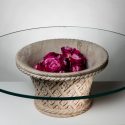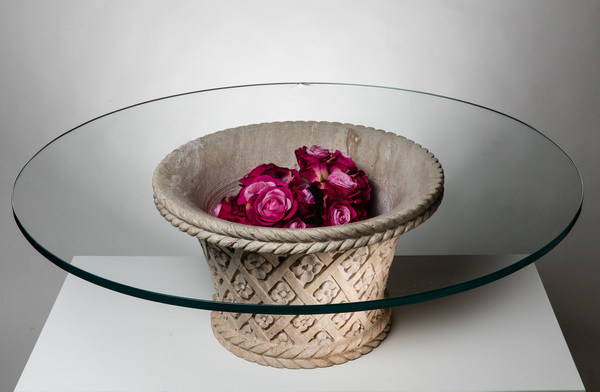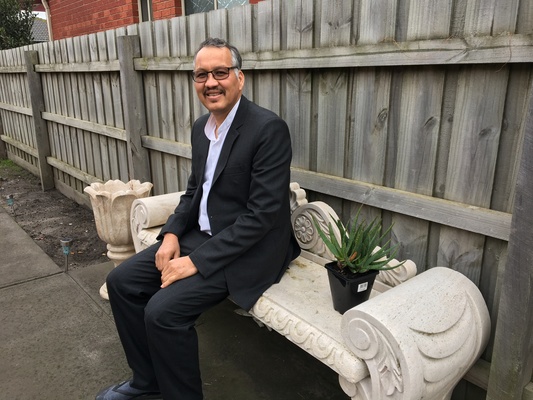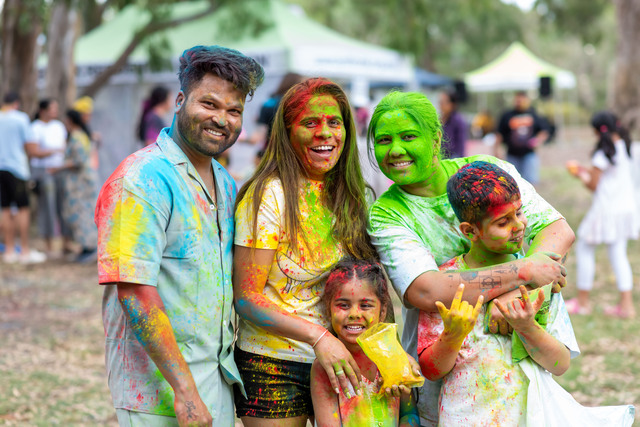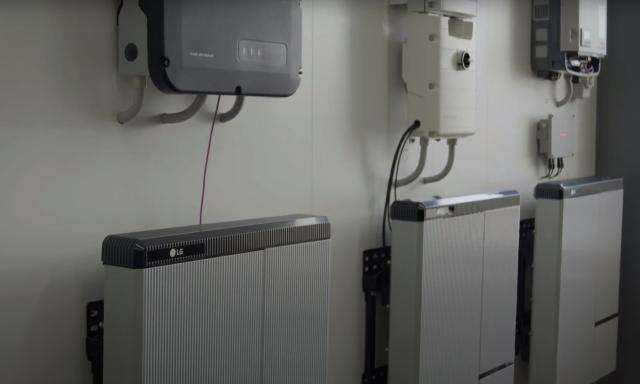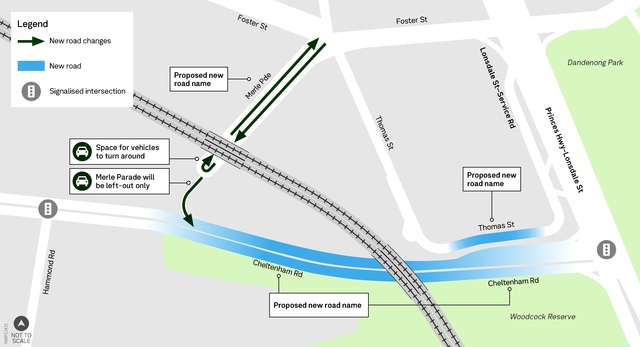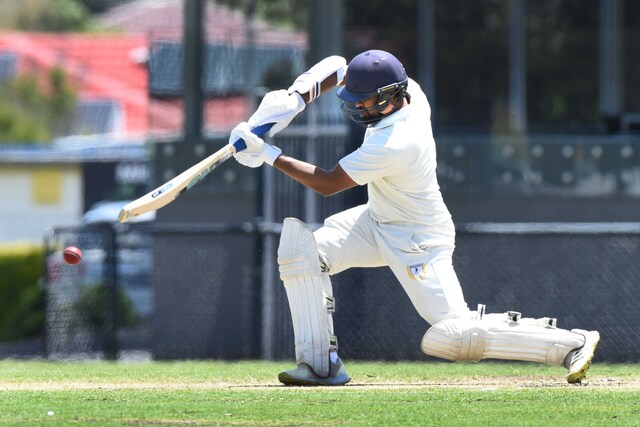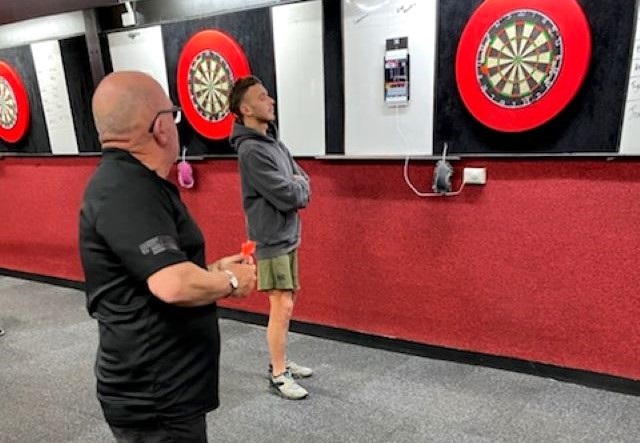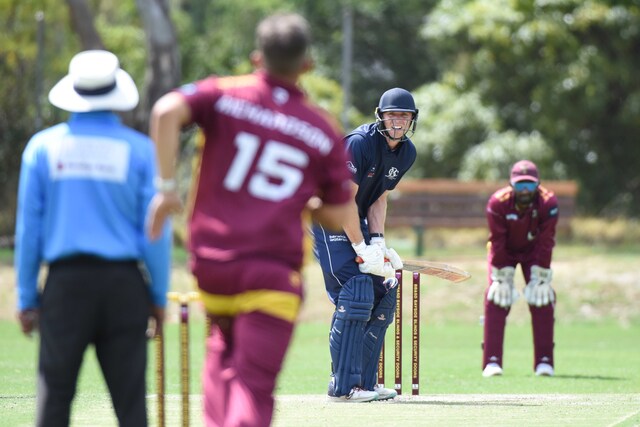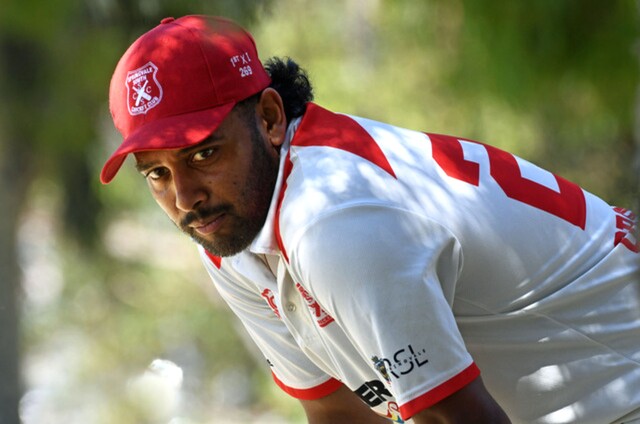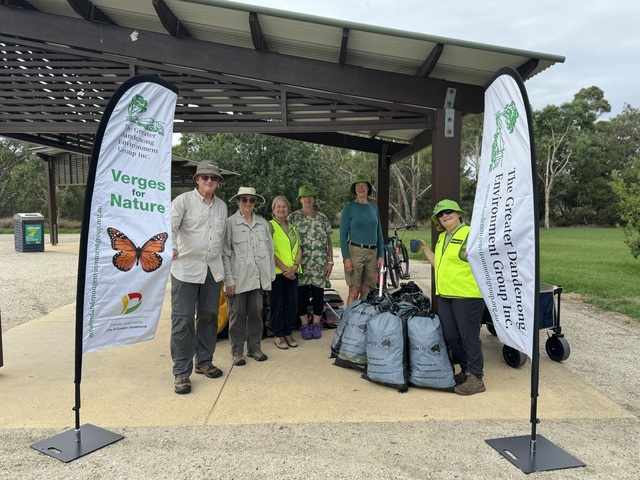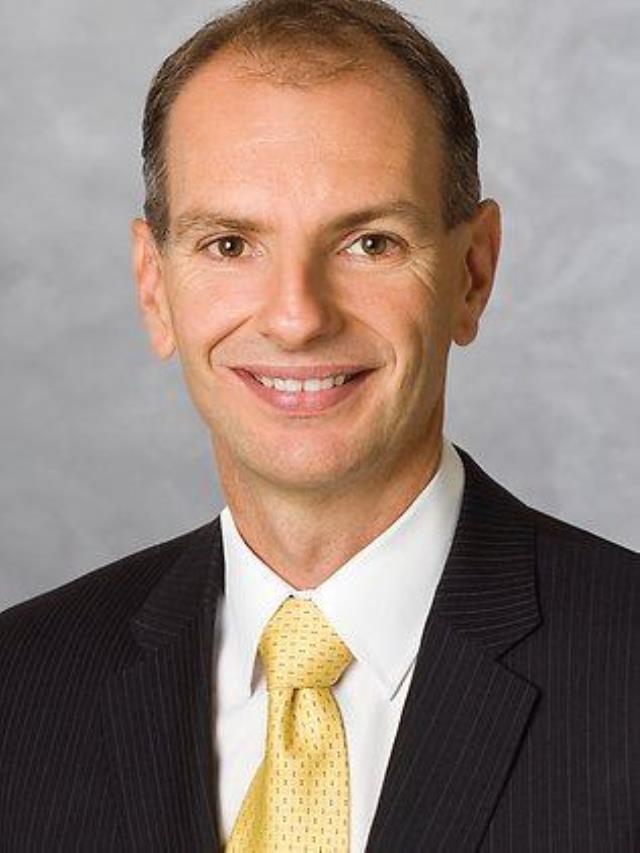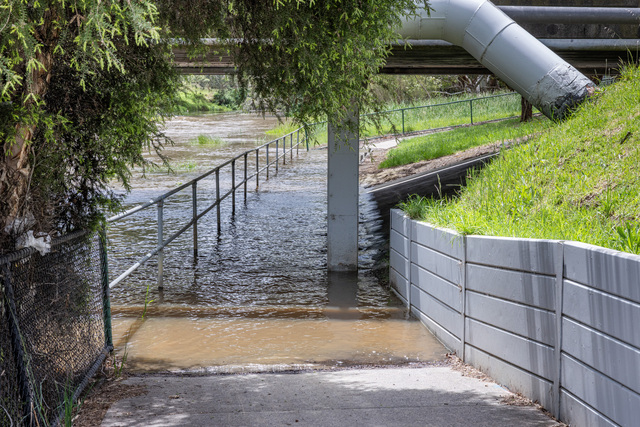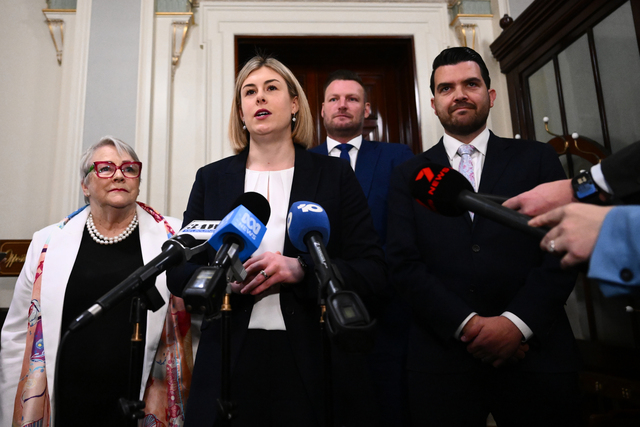By Casey Neill
“It’s like turning something dead into something alive.”
Afghan-born Australian Mohammed Ali Razamani has been a sculptor for more than 30 years.
“When he was introduced to stone, he fell in love with it,” his son Aref said.
That love shines through in the travertine table he created for the refugee art project Heartlands.
The stone carving is on display at Dandenong’s Walker Street Gallery and Arts Centre until Sunday 2 July and will also be shown at the Atrium at Federation Square in Melbourne in September and the Box Hill Community Arts Centre in October.
Mohammed, from Hampton Park, said a handmade wooden basket he used back in his hometown in Afghanistan inspired the piece.
It took him only 20 days to create the curved table bottom, including an intricate flower design.
He started working with stone in 1991 and later established his own company in the industrial city of Herat, Afghanistan.
“In 2014 I started to import travertine stone from Iran to Australia and started my stone decoration work here in Australia,” he said.
“I can proudly say I can make anything out of stone.
“Some of the problems that prevent me from entering the Australian stone decoration market is language and my lack of knowledge about Australian stone industry.
“I am willing to partner up with those who are in stone industry in Australia and willing to help me enter the market and provide them my stone work.”
Mohammed and his family fled Afghanistan in 2009 and arrived in Australia by boat.
“Our lives were in danger,” Aref said.
“We risked everything just to get to a safe place.”
Migrant and refugee settlement agency AMES Australia presents the Heartlands exhibition to provide a glimpse into the experiences, hopes, dreams and passions of the millions of humans displaced by conflict.
It features painting, music, poetry, sculpture, engraving and masks from artists hailing from Syria, Afghanistan, Tibet, Poland, Iran, Myanmar and Zimbabwe.
“The aim of the project is to transcend cultural barriers to reveal the hopes, dreams, challenges and everyday lives of people who make up our refugee communities,” AMES Australia CEO Cath Scarth said.

